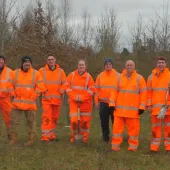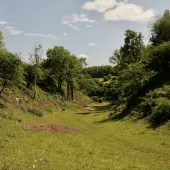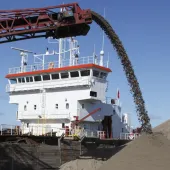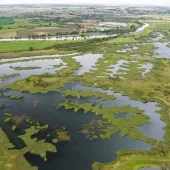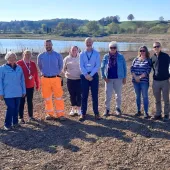Marine industries welcome report on HPMAs

BMAPA among those to welcome independent report on Highly Protected Marine Areas
THE Seabed User and Developer Group (SUDG), which represents marine industries with a deep interest in the marine environment, has welcomed the report of the Benyon Review Panel on Highly Protected Marine Areas (HPMAs) and supports the recommendation that HPMAs are an essential component of a well-managed marine environment.
The recommendations provided by the Panel set out a comprehensive template for HPMAs and SUDG considers it important that government adheres to the full set of recommendations if it goes ahead with designation of HPMAs.
To be effective, for example, SUDG stresses that HPMAs must be properly monitored and all damaging activities should be prohibited. If this is the case, their introduction will ensure greater understanding of what environmental restoration looks like and how this information can be used to improve conservation management in the future.
This means that HPMAs will need a strong and robust evidence base for designation, clear management, and a solid statutory basis for enforcement so that HPMAs are left undisturbed to allow restoration to take place.
SUDG chair Peter Barham, who was part of the independent panel that looked at HPMAs under the chairmanship of Richard Benyon, said: ‘Marine industries in SUDG have a good record of working with conservation bodies to ensure that development and environmental protection go hand in hand.
‘The designation of well-managed and resourced HPMAs will teach us a lot about how to manage conservation of the marine environment and this information can be used to help make sure that we can work to restore the conservation of the sea as well as enable sustainable development solutions which are critical to a sustainable economy and for our net zero ambitions.’
Marine industries have worked very closely with the Government’s conservation agencies and conservation NGOs over the years to develop agreed objectives and practices to protect the marine environment.
Mark Russell, executive director of the British Marine Aggregate Producers Association (BMAPA), said: ‘The marine aggregates sector has supported the development of our nation’s network of marine protected areas through the provision of high-resolution survey data.
‘HPMAs have the potential to make an important contribution to how we manage conservation in the sea and we strongly welcome that sites will be identified on the basis of clear ecological principles, but we also welcome that socio-economic impacts of designation will also be an important part of site selection.’
Joan Edwards, panel member and marine conservation director with The Wildlife Trusts, said: ‘By removing all damaging activities, Highly Protected Marine Areas will give habitats and wildlife space to flourish, thrive and ultimately recover from decades of pressure and decline.
‘The designation of HPMAs will not only act as an ecosystem tool for recovery, but also significantly contribute to the Government’s aim of achieving a well-managed and ecologically coherent network of MPAs.’
Mr Barham added: ‘We were grateful that the views of marine industry were included within the considered discussions about HPMAs and how they may be introduced.
‘The outcome is a set of recommendations to government that we feel puts protection and restoration of the marine environment on a course which industry can work with comfortably and which will help us in developing better ways of working in the future.’
The Seabed User and Developer Group represents marine industries with a deep interest in the marine environment: oil and gas, renewable energy, marine aggregates, ports, submarine cables, recreational boating and carbon capture and storage.
From energy and aggregates to ports, cables and leisure boating, the industries of the sea represent 3.2% of the UK Gross Value Added and support around 150,000 jobs.



